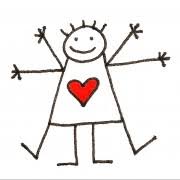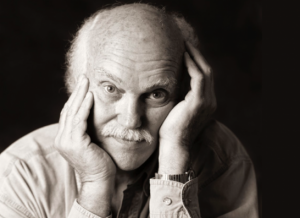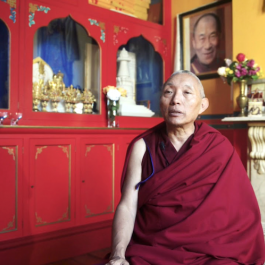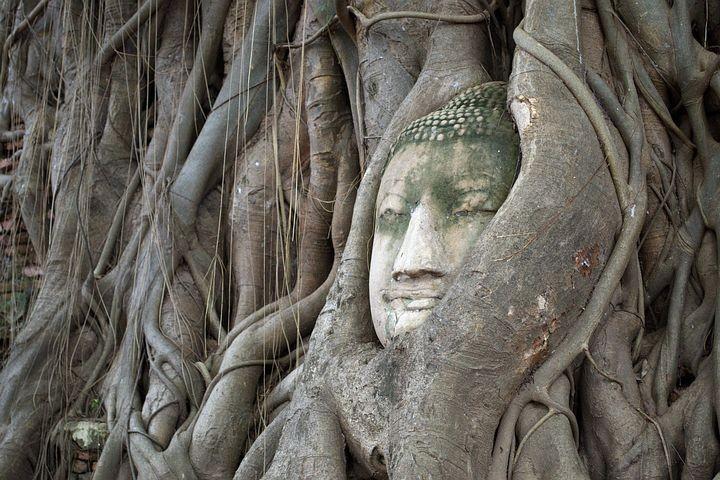
Welcome, dear reader, to another month of taking metta off the meditation cushion and out into the world.
Last month’s article, “Metta’s Snow Days,” found me snowed in for a week in the ancient woodland where I’m still volunteering, as well as digesting the close of a 12-year inner cycle exploring the pendulum swings of location-independence versus being locked down in a city.
Being part of a woodland management team over the past couple of months was just the plant- (or tree-) medicine I needed. However, the new year found me growing more and more uneasy with the increased recreational drug use going on around me.
Drugs of every sort were always on the periphery of this past year volunteering on organic farms, with many fellow volunteers finding freedom in their chosen highs. However, observing them soberly from the periphery, I often wondered whether the thing that had freed them once upon a time was now also imprisoning them?
Some background before I continue.
My BDG contributor’s profile states that I found a home in the Dharma after many years of serious illness, without ever actually writing about those illness years in this column. Since they sparked this 12-year inner cycle of exploring what “home” means to me, I thought I would address this chapter of my life this month.

During my early 30s, I helped a dear friend die of cancer. A few months on, the grief felt set in cement no matter what I tried and so I sought medical help. Being told that a few months of taking anti-depressant medication could provide the rest and reset I so desperately felt I needed, I innocently agreed to take an SSRI (selective serotonin reuptake inhibitor). In the end, it turned out that depression was not what I was suffering from, and that innocent choice to medicate did untold damage. It took several years of enduring numerous side effects before I was able to find the root of what turned out to be a simple nutritional deficiency.
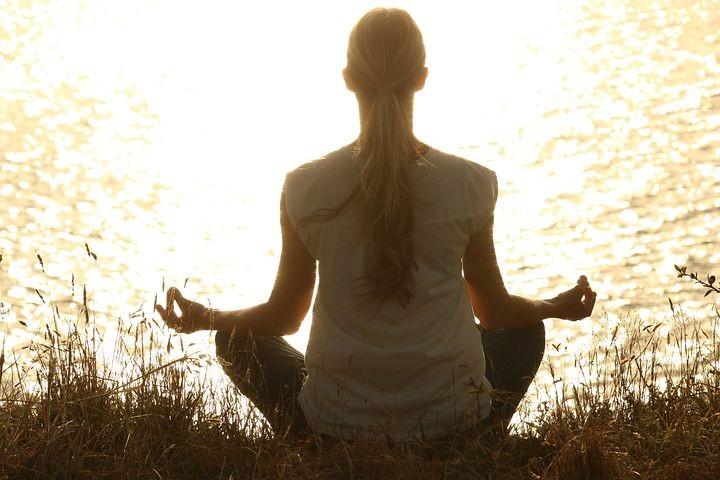
This experience also brought me to meditation.
Those dark years included a 50-kilogram weight gain, Alzheimer’s-level memory loss, premature aging—at one point my blood work was that of a 140-year-old person!—two uterine fibroids the size of grapefruits, premature menopause, incontinence, no spatial awareness to the point of not being able to use stairs, blackouts, hearing voices, and losing just about everyone and everything in my life that I thought mattered.
Those years also taught me the value of staying rooted in reality, avoiding drugs of any kind, and not judging addictions of any kind.
In this past year, I’ve encountered as many reasons for volunteering on organic farms as I have volunteers. Many of the volunteers were recovering addicts looking for a simpler and healthier lifestyle, while others were using that same simplicity as a means to enable their addictions.
As a meditator, I like to believe that I take people as I find them, but I sometimes struggle to discern at what point acceptance tips over into enabling self-harm.
A few weeks ago, the Dharma sent me an unexpected teacher from the other extreme of my personal no-drugs policy. This teacher appeared in the form of a camper looking to park the van in which they lived in the surrounding woodland. As with most campsite arrangements, they pay for a spot to park on and receive access to the same cooking and washing facilities as us volunteers.
The camper and I immediately bonded over Vipassana and bodywork. In my 20s, I worked as a sports massage therapist, and they currently facilitate contact-improv workshops and study somatic psychology. Our conversations soon expanded to various teachings and techniques that we had both explored over the years. Mine had remained sober, while theirs had usually included some form of plant medicine from magic mushrooms to LSD to DMT to rapé to ayahuasca.
What piqued my curiosity was that these were many of the same substances which fellow volunteers I’d encountered over the last year were experimenting with—except minus the spiritual or shamanic framework. Even curiouser, it turned out this person had experienced plenty of spiritual shadow during their exploring and—as a result—they were now training as a plant-medicine facilitator to hold a safe space for the experimentations of others.
When this person asked if I would be willing to be interviewed for their somatic psychology course, I agreed.
As we sat inside their home-on-wheels resting among the trees, I poured out all the details of my medical misdiagnosis years while they reflected back to me how often the contemporary Western medical model sends patients straight down the path of taking SSRIs. The coursework part of the interview completed, they shared a private blog with me of all they had learned from their various “trips”—the good, the bad, and the ugly.

I read it, nodding my head at every other line over how we had arrived at the same “places” of non-duality and expanded consciousness from opposite ends of the drugs pendulum. And it was this that helped me put my finger on why my fellow volunteers’ recreational drug use was making me more and more uncomfortable. I wasn’t judging them as people, I was questioning their motivations for taking drugs.
Here we all were, surrounded by spring water, fresh air, and stunning natural beauty, and my fellow volunteers were using drugs and alcohol every night to numb themselves rather than opening up to these blessings. They were relying on plant medicines to close off their awareness more and more, while my new teacher was relying on the same tools to open their awareness up more and more. And, paradoxically, sobriety had been my mind-altering path to that same freedom they were all seeking through mind-altering substances.
That same week, two more things happened.
I met a local hemp farmer. When I asked about their unusual crop choice—as hemp is legal to grow in the UK, but not cultivating all of its parts, and the UK is the world’s largest importer of cannabidiol (CBD)—the farmer shared that her husband had died of cancer a few years ago. CBD oil was his only true pain-relief, and she now wanted to share that option with the world. A sobering story indeed, especially considering that a cancer loss had started my own explorations of pain-relief.
And I learned how to fell and mill trees.
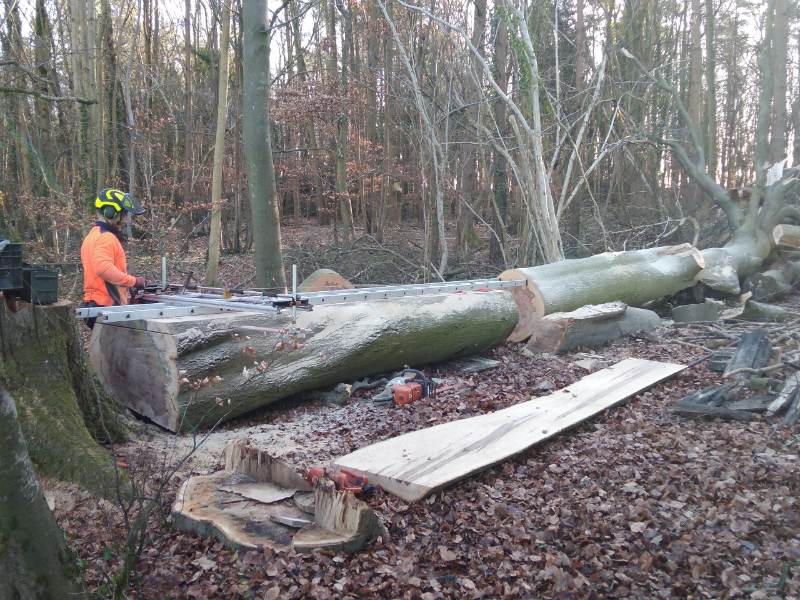
Wielding a chainsaw to remove diseased or dangerous trees from the woodland wasn’t something that came naturally to me at first. However, I instantly fell in love with the flow state of milling planks. What looked like diseased heartwood at first sight could go on to reveal new and unexpected visual delights as each new layer was sawn away.
And the more I sat with my growing personal discomfort with the nightly drink and drug habits of my fellow volunteers, the more my heart opened to any untold personal pain from which they were seeking relief. Perhaps my role here was simply to generate metta, rather than try to understand their choices and addictions?
My final discussion with my new teacher before they drove away from the forest was even more sobering.
Over herbal tea and cream buns, they reflected back to me what a nurturing space I naturally held in the communal kitchen/living room by keeping it filled with baked goods, scented with incense, and tidy enough to welcome all who came by. They appreciated the metta in every mouthful and each in-breath and every friendly interaction whenever they accessed the facilities. However, my teacher enquired: what was I gaining from providing all of this for others desperate to close off their own awareness . . . other than exhaustion? Was I truly aware that it was my metta meditation practice that made the place such a magical home, and not the other way around? And was I aware that our host—possibly threatened by the inexplicable peace of our cohort after years of drama with groups of volunteer—actually made fun of my homemaking behind my back?
As I digested these questions, three things became clear: thanks to my meditation practice I was always “home,” wherever I went; my self-care was veering close to enabling my team’s self-harm; and (much as I had come to love this particular team) that it was time for me to move on.

And so, dear reader, whatever lifecycle may be closing for you, and however long it took for you, and whatever helped to get you here, please forgive rather than judge yourself any and all pendulum swings to explore the extremes.
Or, to metta-morphose John Lennon’s “Whatever Gets You Through the Night” (featuring Elton John):
Whatever gets you to the light
It’s all right, it’s all right
Out of the blue or out of sight,
It’s all right, it’s all right
Don’t need a gun to blow your mind
Oh no, oh noHold me metta
Come on listen to me
I won’t do you no harmTrust me metta
Come on listen to me
Come on listen to me
Come on listen, listen
See more
Irving Kirsch’’s “The Emperor’s New Drugs” (YouTube)
Michael Pollan’s “This is Your Mind on Plants” (YouTube)
Testimonial on depression and how nutrition helps (YouTube)
Related features from BDG
Life Is Not Useful
Meaning, Part Two
Healing the World: The First Problem
Nurturing the Roots of the Thai Forest Lineage in Britain: A Short Conversation with Ajahn Sucitto
Can Small Farms Save the World? Part Two: Forest Gardens


